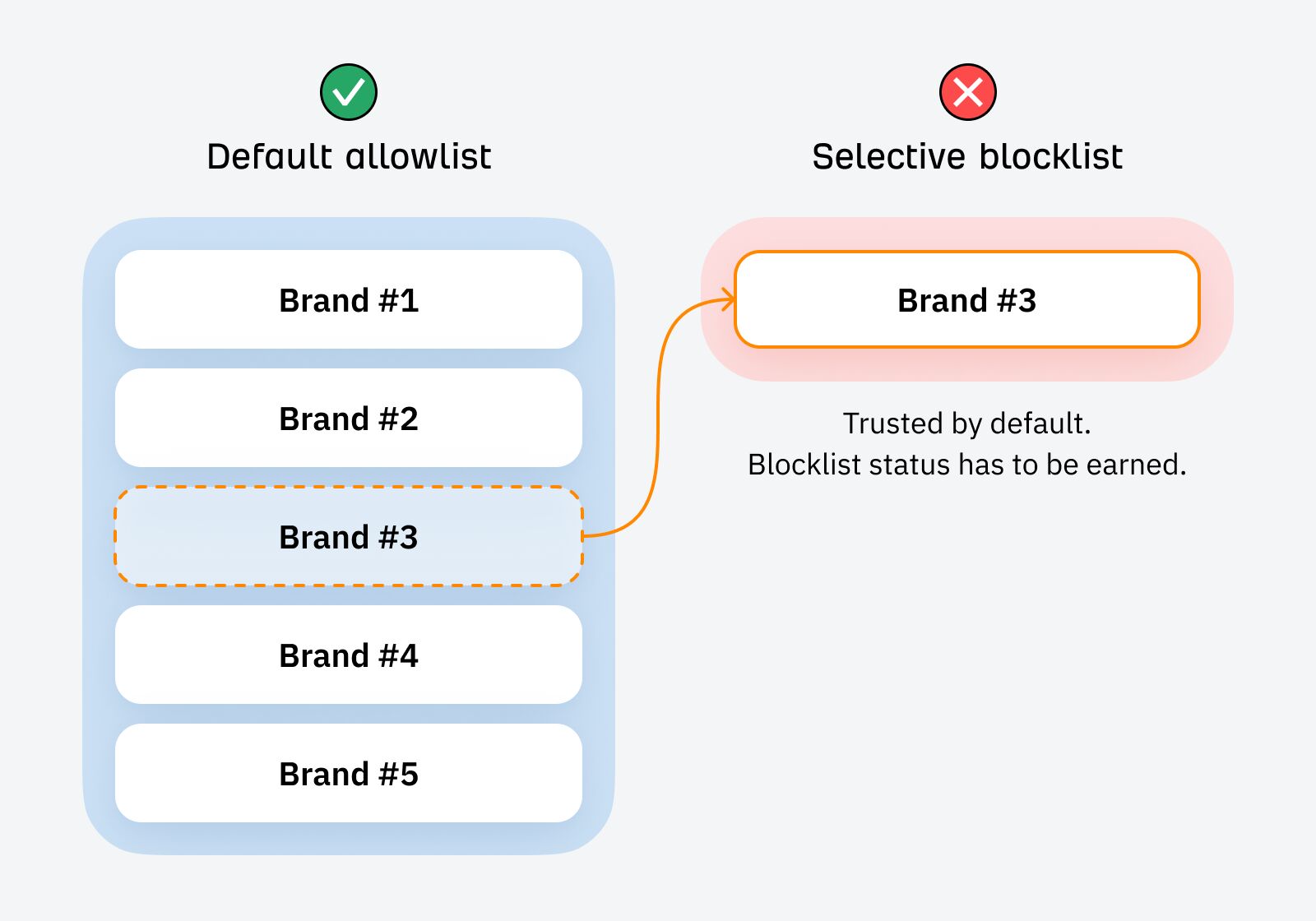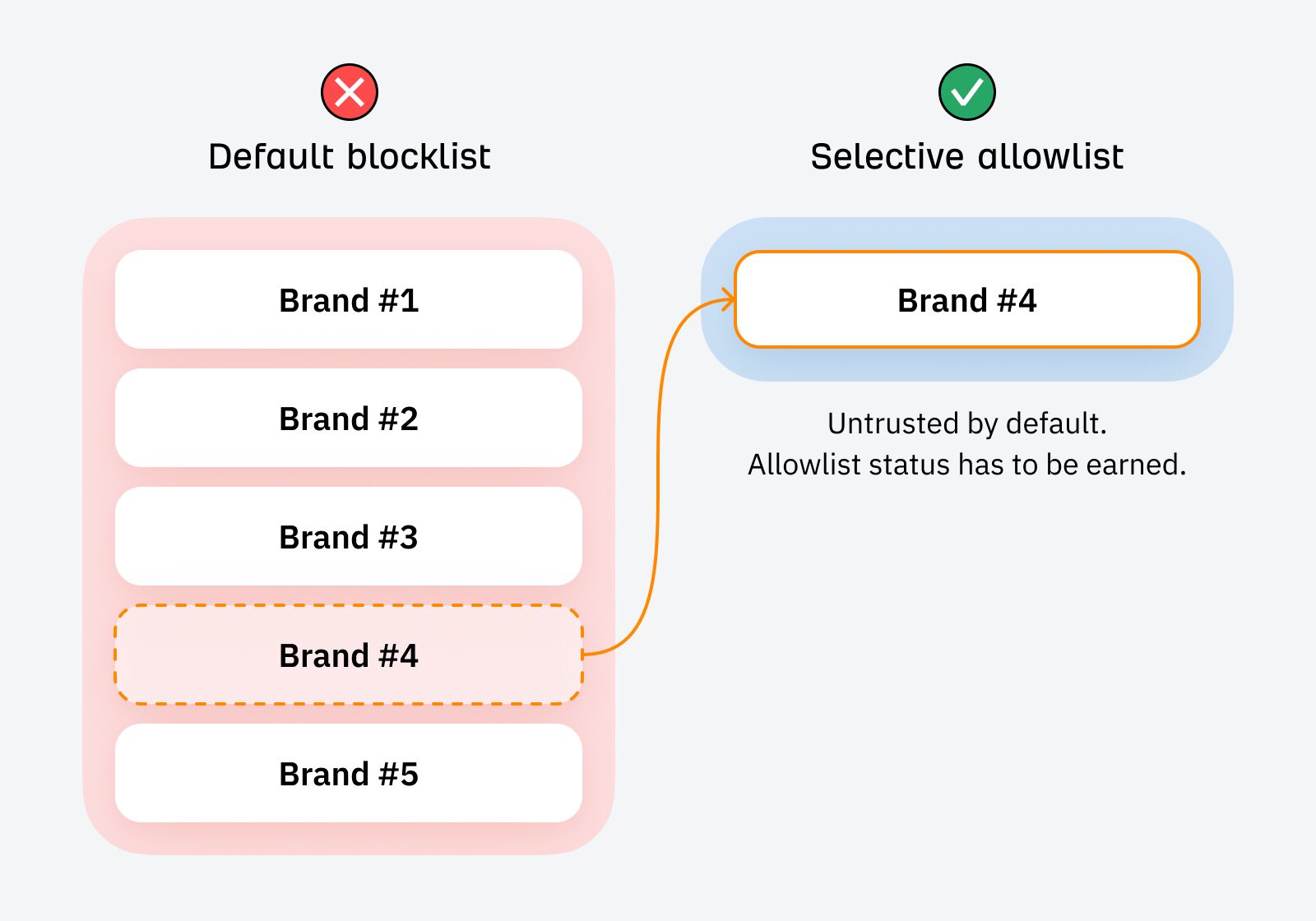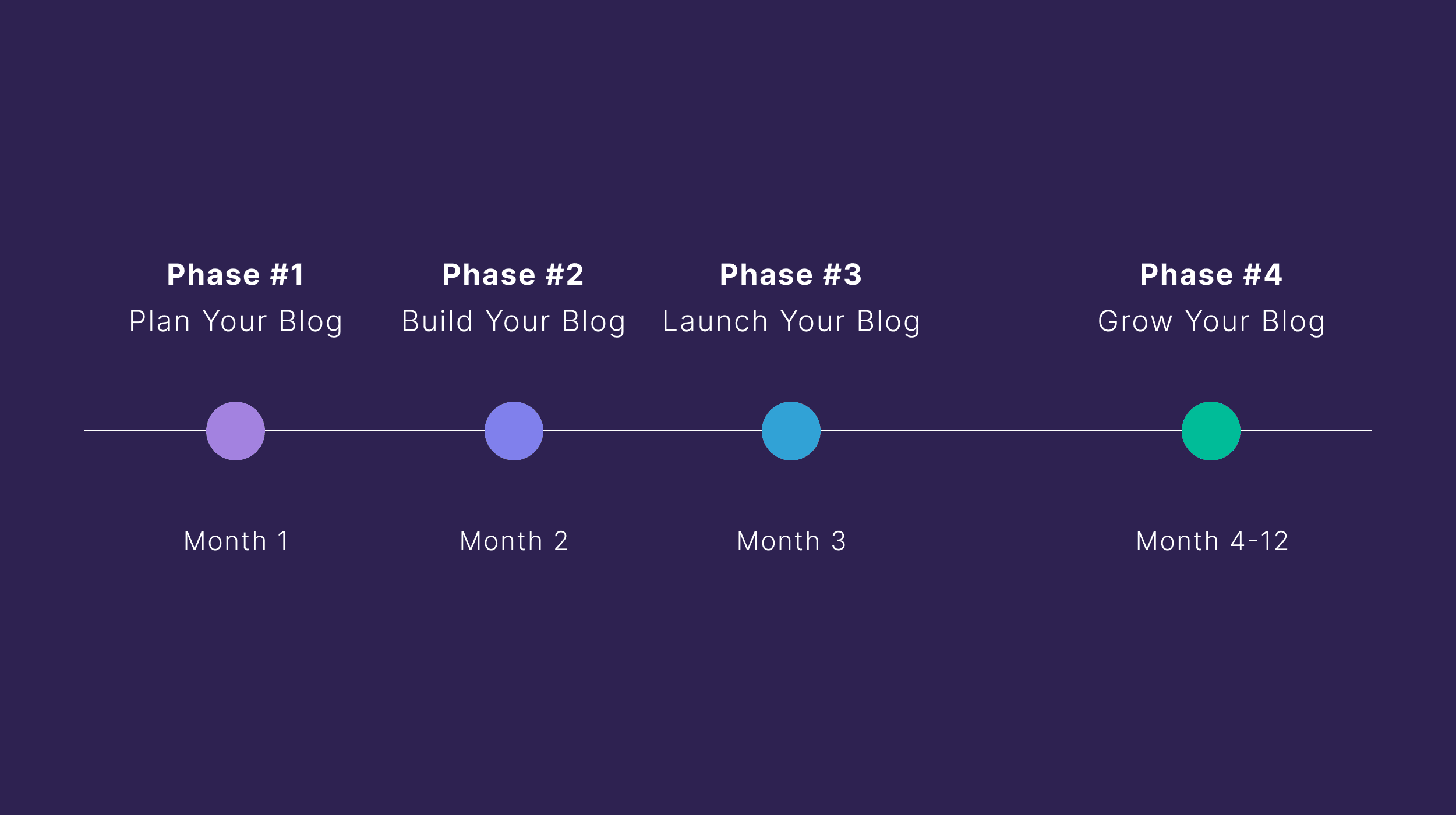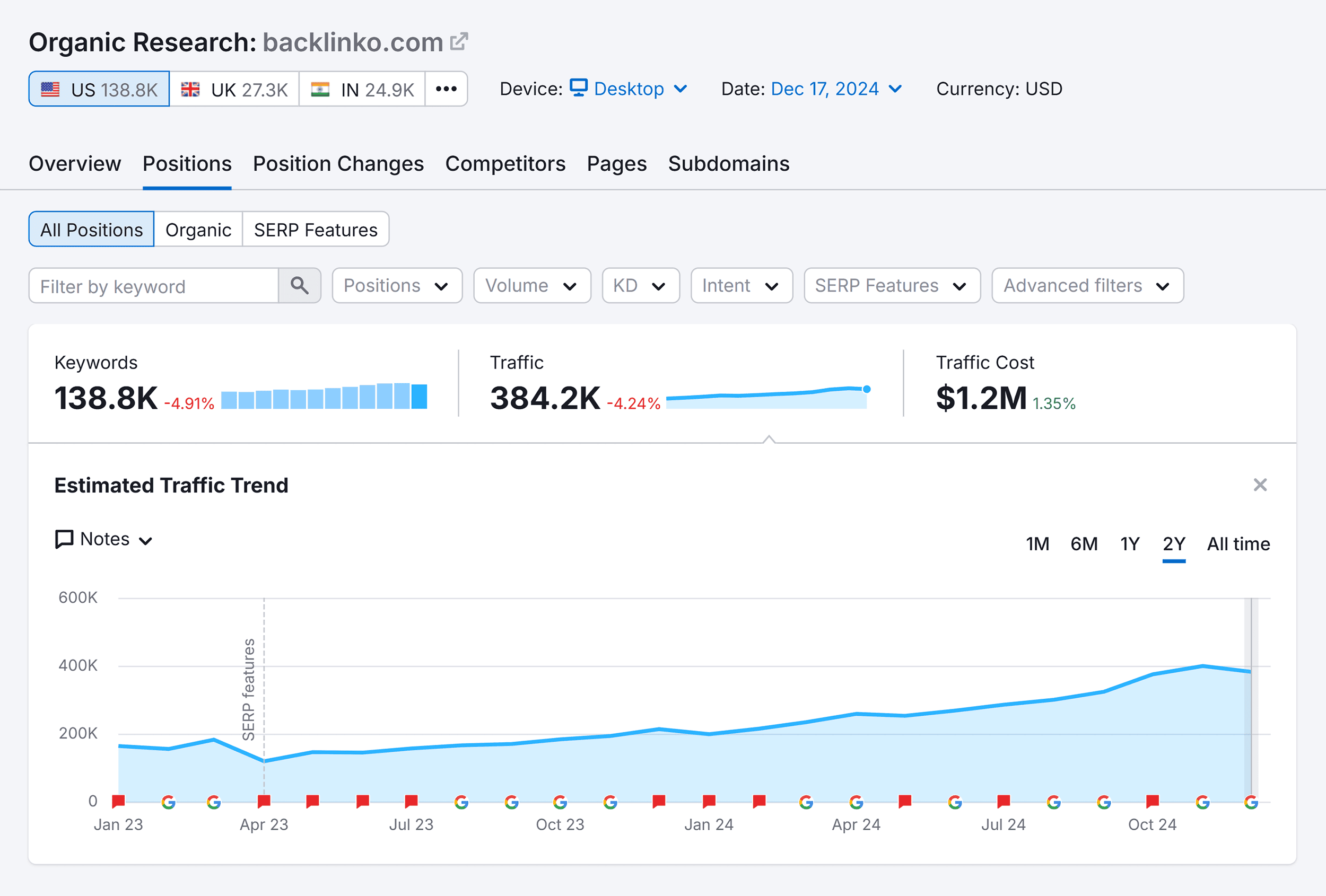As the web fills inexorably with AI slop, searchers and search engines are becoming more skeptical of content, brands, and publishers.
Thanks to generative AI, it’s the easiest it’s ever been to create, distribute, and find information. But thanks to the bravado of LLMs and the recklessness of many publishers, it’s fast becoming the hardest it’s ever been to tell the difference between genuine, good information and regurgitated, bad information.
This one-two punch is changing how Google and searchers alike filter information, choosing to distrust brands and publishers by default. We’re moving from a world where trust had to be lost, to one where it has to be earned.
As SEOs and marketers, our number one job is to escape the “default blocklist” and earn a spot on the allowlist.
Hitting the “boost” button for big brands may be a temporary measure from Google while it improves its algorithms, but even so, I think this is reflective of a broader shift.
As Bernard Huang from Clearscope phrased it in a webinar we ran together:
“I think with the era of the internet and now infinite content, we’re moving towards a society where a lot of people are default blocklisting everything and I will choose to allowlist, you know the Superpath community or Ryan Law on Twitter… As a way to continue to get content that they deem to be high-signal or trustworthy, they’re turning towards communities and influencers.”
In the pre-AI era, brands were trusted by default. They had to actively violate trust to become blocklisted (publishing something untrustworthy, or making an obvious factual inaccuracy):

But today, with most brands racing to pump out AI slop, the safest stance is simply to assume that every new brand encountered is guilty of the same sin—until proven otherwise.
In the era of information abundance, new content and brands will find themselves on the default blocklist, and allowlist status needs to be earned:

In the AI era, Google is turning to gatekeepers, trusted entities that can vouch for the credibility and authenticity of content. Faced with the same problem, individual searchers will too.
Our job is to become one of these trusted gatekeepers of information.
Newer, smaller brands today are starting from a trust deficit.
The de facto marketing playbook in the pre-AI era—simply publishing helpful content—is no longer enough to climb out of the trust deficit and move from blocklist to allowlist. The game has changed. The marketing strategies that allowed Forbes et al to build their brand moat won’t work for companies today.
New brands need to go beyond rote information sharing, and pair it with a clear demonstration of credibility.
They need to signal very clearly that thought and effort have been expended in the creation of content; show that they care about the outcome of what they publish (and are willing to suffer any consequences resulting from it); and make their motivations for creating content crystal clear.
That means:
- Be selective with what you publish. Don’t be a jack-of-all-trades; focus on topics where you possess credibility. Measure yourself as much by what you don’t publish as what you do.
- Create content that aligns with your business model. Coupon code and affiliate spam subdirectories are not helpful for earning the trust of skeptical searchers (or Google).
- Avoid “content sites”. Many of the sites hit hardest by the HCU were “content sites” that existed solely to monetize website traffic. Content will be more credible when it supports a real, tangible product.
- Make your motivations crystal clear. Make it obvious who you are, why (and how) you’ve created your content, and how you benefit.
- Add something unique and proprietary to everything you publish. This doesn’t have to be complicated: run simple experiments, invest greater effort than your competitors, and anchor everything in first-hand experience (I’ve written about this in detail here.)
- Get real people to author your content. Encourage them to show off their credentials through photographs, anecdotes, and author bios.
- Build personal brands. Turn your faceless company brand into something associated with real, breathing people.
- Use Google’s gatekeepers to your advantage. If Google is telling you that it really trusts Reddit content, well… maybe you should try distributing your content and ideas through Reddit?
- Become a gatekeeper for your audience. What would it mean to become a trusted gatekeeper for your audience? Limit what you share, carefully curate third-party content, and be willing to vouch for anything you publish.
Final thoughts
The blocklist is not a literal blocklist, but it is a useful mental model for understanding the impact of AI generation in search.
The internet has been poisoned by AI content; everything created henceforth lives under the shadow of suspicion. So accept that you are starting from a place of suspicion. How can you earn the trust of Google and searchers alike?
Further reading
Content Copyrights Belong to The Author. All Rights Reserved.
We're A Dallas Digital Marketing Agency That is Experts At Social Media Marketing, Website Design and Emarketing and Promotion.




